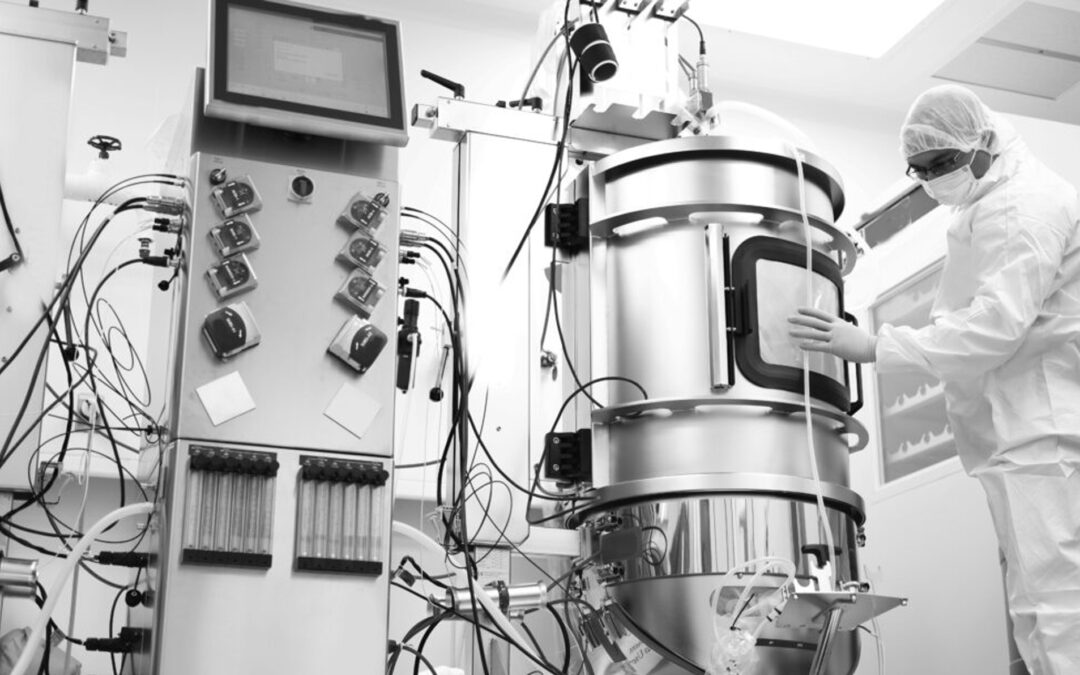As we have recently discussed in previous blogs, biomanufacturing is a rapidly growing field that has been facing significant challenges due to the high capital expenditure (CapEx) required to build the necessary infrastructure to support this new technology. According to the recently released PCAST report, biomanufacturing is a required and unique space which demands significant investment in infrastructure in order to be successful and alludes to the US federal government to lead this charge. Research behind biomanufacturing is plentiful, but lack of necessary infrastructure resulted in the industry quickly bottlenecking. However, there is now hope on the horizon for investors and startups in this space thanks to non-diluted capital being sourced from the federal government as announced in the 2022 Executive Order. The Executive Order serves as a compendium to expand sustainability and biotechnology by facilitating investment initiatives within major sectors to provide support for advancement across scientific disciplines and industrial sectors such as health, energy, and agriculture. The federal government’s recognition of biomanufacturing infrastructure importance is a game changer for the industry. In the past, we saw government agencies primarily focused on supporting the science and research behind biomanufacturing but did not allocate funds for infrastructure necessary to commercialize the technologies being researched and produced in scalable form. As a result, corporations and investors were left to take on financial risks of investing in the infrastructure required to support biomanufacturing processes.
Contrary to past investment patterns in the synbio space, there have been swift changes as of recent as we see the federal government amping support in the much-needed biomanufacturing infrastructure, ultimately reducing CapEx required by startups and thus investors to become involved in this space, by allocating over $1 billion to catalyze the current biomanufacturing base. This new source of non-diluted capital is significant for investors and startups in terms of leveraging the opportunities to accelerate biomanufacturing infrastructure in a reduced CapEx space. This infrastructure initiative has been repeated throughout history and remains a cyclic and integral part of broadscale development comparable to the development of essential societal needs and technologies, from inland waterways, railroads or roads for transportation, utility and communication or simply high-speed Internet capabilities/bandwidth, that strengthen the domestic employment, economy, security and supply chain.
To understand the full scope of this opportunity, it is important to reference various federal initiatives backing biomanufacturing infrastructure. The U.S. Department of Defense (DoD) announced a budget ceiling increase of $1 billion in funding while establishing four new National Quantum Information Science Research Centers, and the National Science Foundation’s (NSF) new initiative to support biomanufacturing via $20 million a year infrastructure investment in DOE BETO funded agency collaboration of the Agile BioFoundry (ABF). BioMade, a DoD sponsored Manufacturing Innovation Institute (MII), has secured nearly $500 million in federal funding as well as an additional $12 million in federal funds and nonfederal cost share to supplement the bio-industrialization of 15 projects that include the establishment of their respective pilot facilities. In addition, the most recent Inflation Reduction Act provisions approximate $10 billion in project funding toward the Advanced Energy Project Credit Program in effort to incentivize investment in American renewables in bioenergy. The U.S. Department of Energy (DoE) has also recently announced $178 million to fund project advancements in sustainable biofuels and bioenergy alternatives. All of the aforementioned funding commitments are a small sample of the widespread investment initiatives being made to pioneer the bioeconomy, a vital circular economy that we will all rely on very soon.
Looking ahead, The federal government’s recognition of this issue is a significant step forward in supporting the growth of this industry as we begin to see domestic expansion in the bioindustry. One key reason why the federal government is stepping up support for biomanufacturing is to maintain competitive advantage among countries that have already begun investing heavily in this new frontier, such as the EU and growing economic powerhouses India and China. In order for the United States to remain a leader in the global market, it is essential that we invest in biomanufacturing infrastructure as a leverage for supply chain reinforcement and longevity. One initiative to achieve this goal, the DoD plans to launch Tri-Service Biotechnology for a Resilient Supply Chain Program by investing over $270 million into accelerating research-to-production turnover that will drastically impact the rate at which we see commercialization and expeditious scaling of biotechnologies. Bioprocess scaling will halve production time and catalyze bioindustrial output, improving U.S. contribution to global bioeconomy by establishing sector growth, national security, and supply chain potency.
References
DOE Announces $178 Million to Advance Bioenergy Technology
https://www.energy.gov/articles/doe-announces-178-million-advance-bioenergy-technology
The United States Announces New Investments and Resources to Advance President Biden’s National Biotechnology and Biomanufacturing Initiative- https://www.whitehouse.gov/briefing room/statements-releases/2022/09/14/fact-sheet-the-united-states-announces-new investments-and-resources-to-advance-president-bidens-national-biotechnology-and biomanufacturing-initiative/
Treasury, Energy Release Guidance on Inflation Reduction Act Programs to Incentivize Investments in Underserved Communities, Hard-Hit Coal Communities
https://home.treasury.gov/news/press-releases/jy1269
BioMADE Receives $450M Budget Increase from The Department of Defense https://www.biomade.org/news/biomade-budget-increase
Announcing 16 Projects to Accelerate Bioindustrial Manufacturing in the U.S.- https://www.biomade.org/news/announcing-16-projects-to-accelerate-bioindustrial manufacturing-in-the-us
Safeguarding the Bioeconomy- 2020-
https://nap.nationalacademies.org/read/25525/chapter/2
Agile BioFoundry (ABF) Overview- https://www.energy.gov/sites/default/files/2021-04/beto 01-peer-review-2021-abf-hillson_0.pdf


Recent Comments